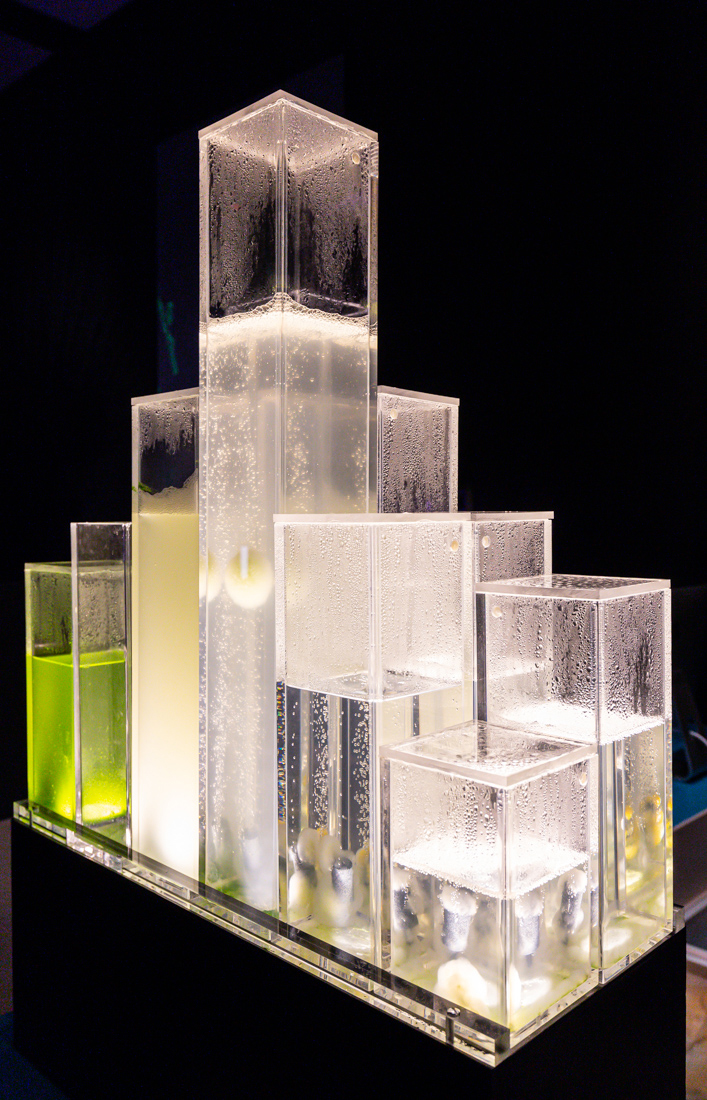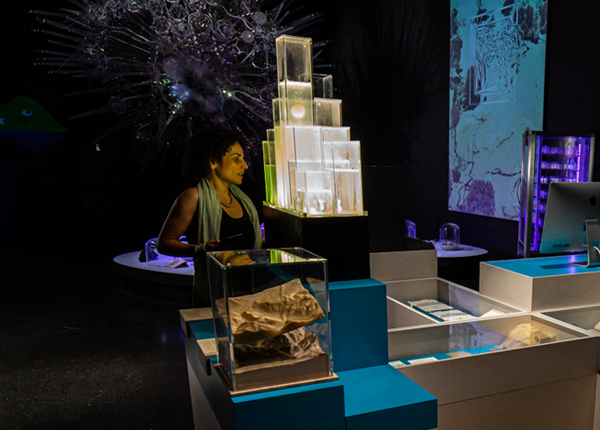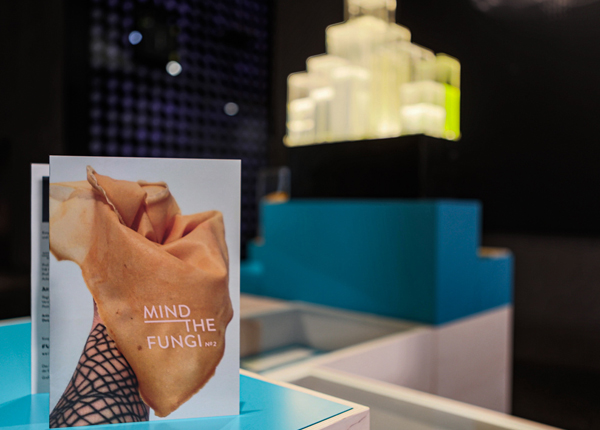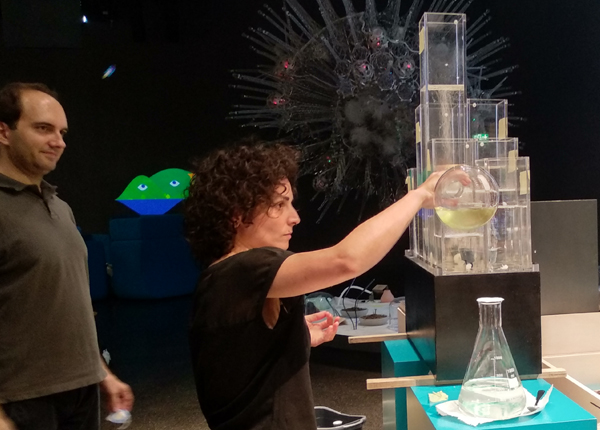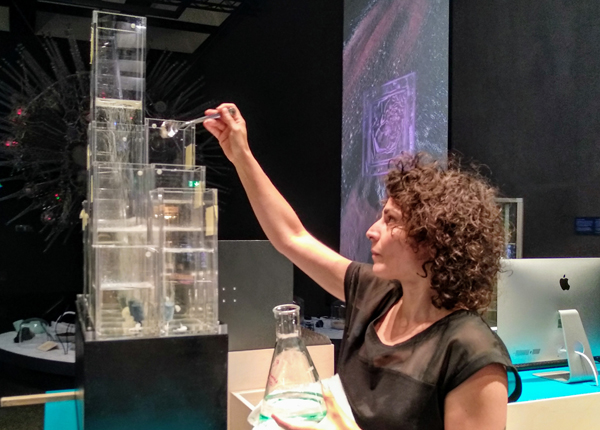Niche. An example of co-existence.
©Fara Peluso - 2020
Mind the Fungi 2018 - 2020
The Artist and Design Residencies of Mind the Fungi
with artist Theresa Schubert and artist designer Fara Peluso brought
in art and design as constructive sources of ideas for this research
project. Peluso has done research on new biomaterials on the symbiotic basis
of algae and fungi. The artistic and design related works are a
result of a close collaboration with both departments of TU Berlin’s
Institute of Biotechnology – Prof. Vera Meyer’s department
of Applied Molecular Microbiology and Prof. Peter Neubauer’s
department Bioprocess Engineering.
Niche is a hybrid installation and living sculpture, which explores co-existence between fungi and algae microorganism. Artist designer Fara Peluso works in Material Driven Design and Bioart and connects human beings with nature, organisms and biological processes. Taking inspiration from symbiotic relationship between these organisms in lichens, Peluso combines nature, biotechnology and art. Niche deploys the techniques of a bioreactor as an example of architectural coexistence between the mycelium and the algae micro-organisms. Taking inspiration from the existence of lichens, which are the result of a symbiotic relationship between these organisms, Niche translates a scientific process and a technology into an artistic work to explain co-existence theory and how a specific framework in Nature can maintain species diversity between two organisms under a specific environment. The work follows a scientific protocol developed by the department of Bioprocess Engineering TU Institute of Biotechnology in Berlin and produced in their laboratory together with Art Laboratory Berlin . The name Niche derives from the scientific term, “ecological niche”, which describes the match of species to a characteristic environmental condition and how an organism or a population responds to the distribution of resources and competitors. Niche shows how lichens work questioning what we can learn from biological systems and how to integrate them in our daily life.
Fara Peluso would like to thank their colleagues at the Institute of Biotechnology of TU Berlin for their great support. Thanks to Peter Neubauer and Stefan Junne from department Bioprecess Engineering department.
Photos ©Tim Deussen
